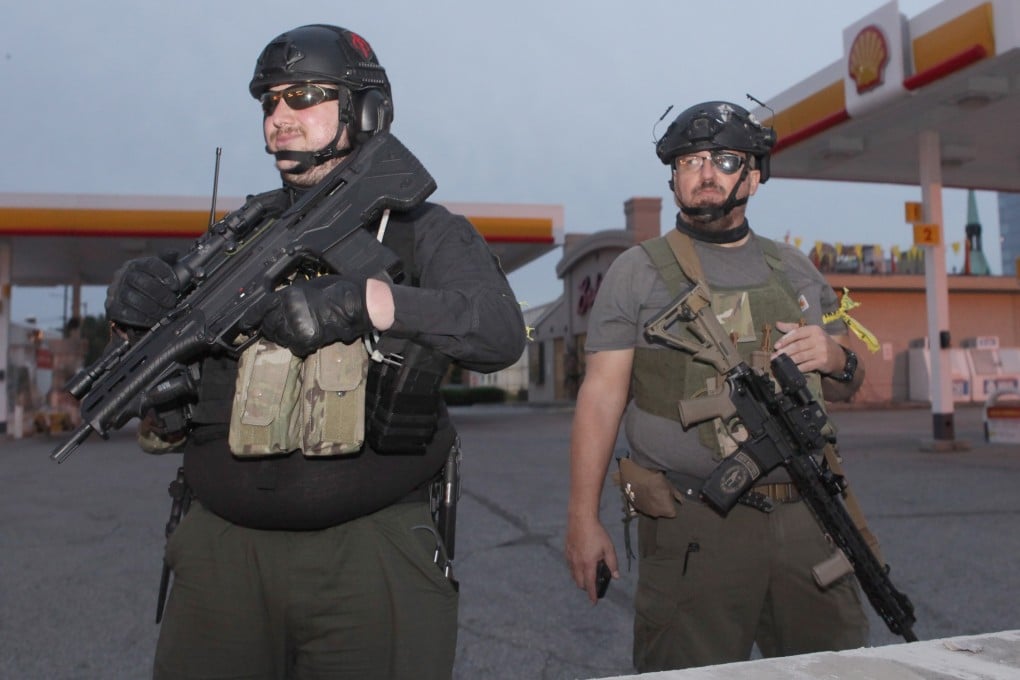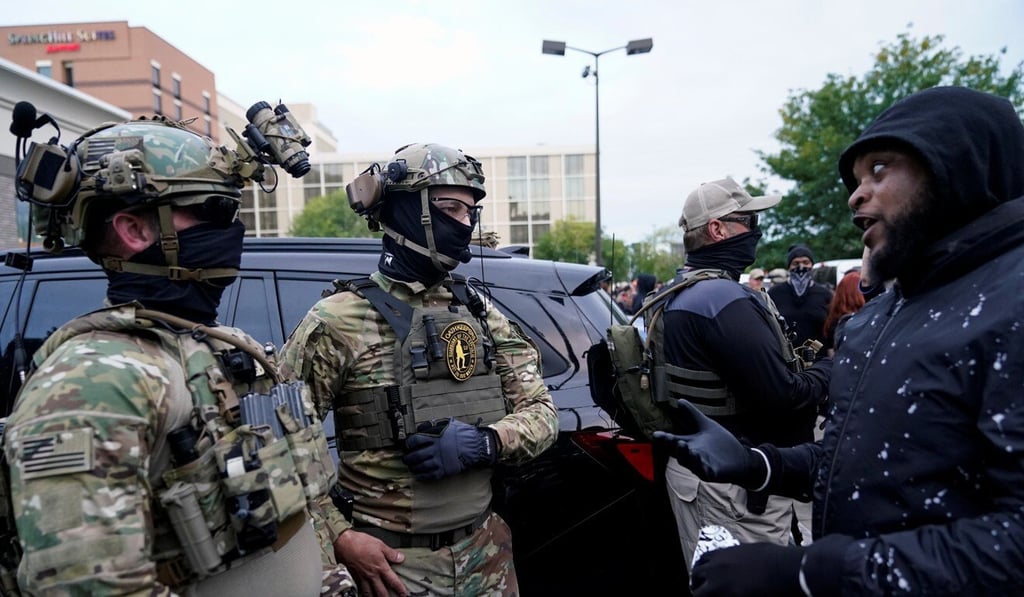US election 2020: what if armed, far-right groups go to polls as Americans vote?
- With political tensions running high, protesters from a variety of groups could clash at polling places and protest sites
- The Department of Homeland Security warned that anti-government groups could carry out attacks

They go by names like Oath Keepers, Wolverine Watchmen and the Three Percenters. They chat on Gab, Discord, 4chan and other social media. Heavily armed and loyal to US President Donald Trump, many vow to descend on polling places November 3 in a far-right show of unity.
Armed, far-right groups have long echoed at the fringes of American politics, drawing white nationalists and other extremists to their ranks. But over the last four years – when conservative causes have collided with social justice movements – their voices have grown louder, their actions more brazen. The alleged plot last week by extremists to kidnap Michigan Governor Gretchen Whitmer was a stunning indication of the potential for domestic terrorism.
The groups are now turning their attention to battleground states in the most consequential election in generations. Far-right organisations have rallied around Trump, positioning themselves as a counterforce to movements like the antifascist antifa and Black Lives Matter, whom they blame for nationwide protests that have stirred unrest in recent months. Most Black Lives Matter protesters have been non-violent.

The Oath Keepers claim thousands of members, including those who served in the military and law enforcement. Some have signed up as poll watchers, while others plan to monitor the election armed and “undercover”, drawing their weapons if needed, said founder Stewart Rhodes, a former US Army paratrooper and Yale law school graduate: “We’ll be out on Election Day to protect people who are voting.”
With political tensions running high across the country, protesters from a variety of groups could clash at polling places and protest sites. That happened Saturday in Denver when a man was shot and killed in a skirmish between far-left and far-right activists.